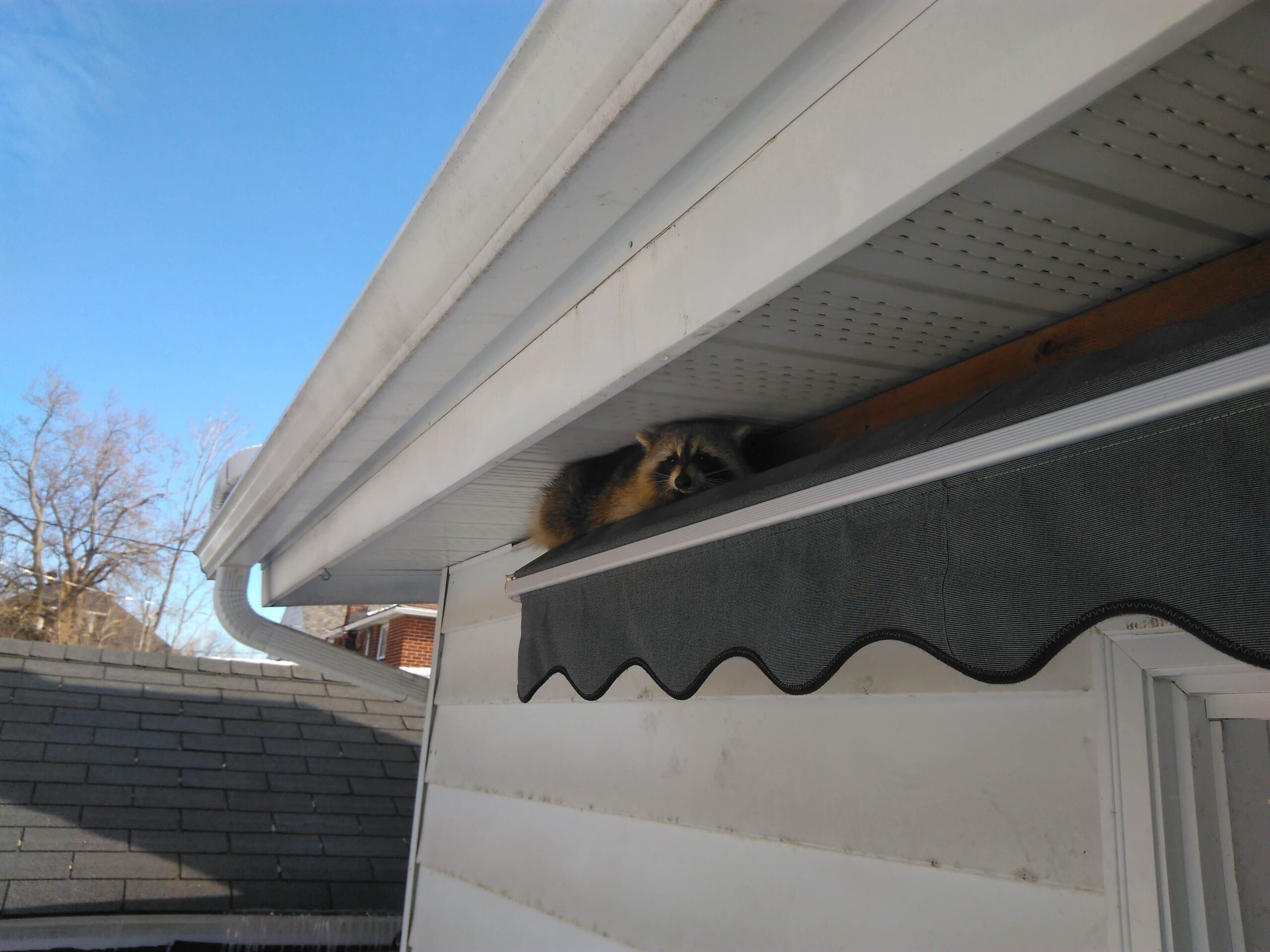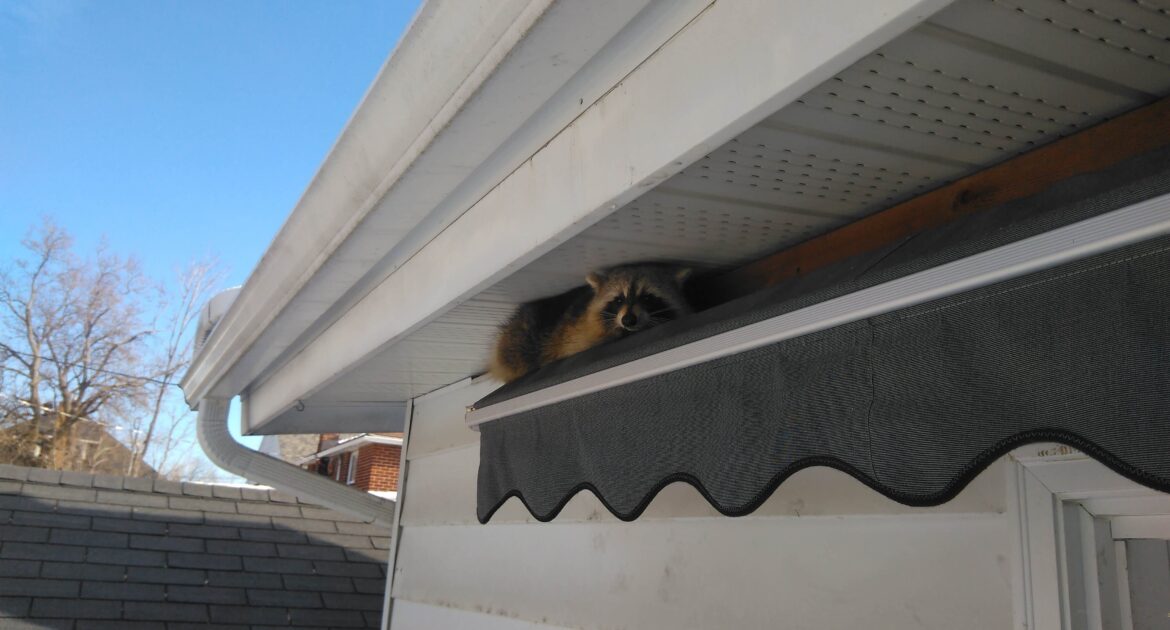One of the most striking features of the raccoon is its eyes. Most know them for the black mask that makes them look like a thieving bandit. If you’ve had one steal from your garbage bin, you understand how the masked bandit got its nickname. When you have a raccoon treating your home like an all-you-can-eat buffet and hotel, let the experts in humane wildlife control in Newmarket safely evict your unwelcome tenant.
Though scientists aren’t entirely sure what purpose the black colouration serves, one hypothesis is that it helps cut back on the glare of sunlight when they happen to be out in the daytime. If that’s true, it’s just one more way a raccoon’s eyes are adapted for how it lives. Here’s a look into the vision of a raccoon.
Raccoons Don’t Need Night-Vision Goggles
The masked bandit does most of its living after the sun sets. As a primarily nocturnal creature, it has a vision that is especially well-adapted to seeing in the dark. When you see raccoon eyes in the daylight, it can be hard to describe the colour. The animal’s eyes appear a mix of inky black to dark purple. However, if you’ve seen the eyes when a light shines on them, you likely noticed that they seemed to glow red, blue or silver. The reason the animal’s eyes change colour has to do with the physical structure of the eyes.
Raccoons have what’s known as a tapetum lucidum in their eyes, which reflects incoming light. The angle, type of light and physical and health traits in individual raccoons all determine the colour of the reflection. Raccoons share this characteristic with other nocturnal animals. It is a trait that improves nighttime vision without the need for night-vision goggles, allowing raccoons to hunt and forage in the dark.
Raccoons Aren’t Blinded by the Light
While the mischievous little critter does most of its handiwork at night, it is capable of getting around in the daylight hours. Raccoons may have eyes that work particularly well in the dark, but they can see in the daylight, too. They are not blind, though many assume they are or that they at least have very poor vision.
However, raccoons see up close better than they see things at a distance. Near-sightedness is the downside to having an eye structure well-suited for hunting at night. The lack of far-sighted vision makes raccoons more vulnerable when exploring outside their dens in daylight. If you see one out during the day, it’s likely sticking close to cover, in tall grasses or near trees, houses or other structures.
Raccoons Don’t View the World in Black and White
Though these creatures see better in a world cast in darkness, they don’t see everything in black, white and shades of grey. However, raccoons likely don’t discern colour well. Like our canine friends, raccoons probably only pick up a few colours. As a nocturnal animal, night vision and the ability to see movement are far more important than seeing all the colours of the rainbow.
These clever creatures also have other senses that are highly developed. They rely on their sense of touch more than any other sense. The pads on their paws have sensory receptors that allow them to pick up on a wide range of details for anything they touch. Scientists now think that raccoons don’t wet their food to wash it but to get more information about it.
Wildlife Control in Newmarket
Do you have a raccoon causing mischief around your home? Let Skedaddle help with humane raccoon removal. Though raccoons aren’t typically aggressive, they can get that way when they feel threatened. Our technicians have the knowledge and skill to ensure the raccoon’s safety and yours. Contact us today to schedule services.




